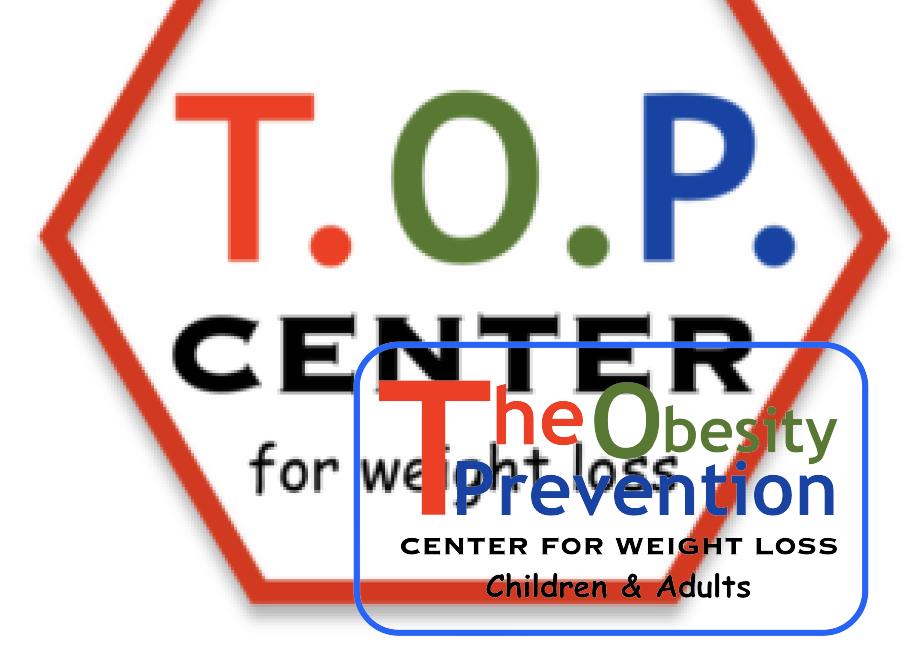The journey of weight loss is a multifaceted endeavor that requires not just a shift in nutritional habits and activity levels, but a change in mindset as well. Most people perceive weight loss as a series of restrictive diets and strenuous high-intensity workouts. However, to create a sustainable change, it’s beneficial to take a comprehensive view.
Understanding fundamental concepts such as the caloric equation, role of different nutrients, and how it shapes our body’s metabolism aid in making informed decisions tailored to individual needs. Simultaneously, acknowledging the psychological aspects can equip us with ways to maintain motivation, discipline, and manage setbacks. Lastly, our focus will also be to debunk some common weight loss myths and misconceptions to set the path right from the get-go.
Understanding Weight Loss
Calories Intake and Output in Weight Loss
Weight loss occurs when the energy or calories you burn exceed the energy or calories you consume. This principle is often referred to as ‘calories in versus calories out.’ When you ingest more calories than your body needs for immediate energy, the excess is stored as fat. To lose weight, you must create a calorie deficit by consuming fewer calories, burning more calories through physical activity, or both.
Metabolic Rate and its Effect on Weight Loss
One key aspect of weight loss is the metabolic rate, which is the rate at which you burn calories. Your metabolic rate is influenced by several factors, including age, sex, muscle mass, and genetics. Those with a higher metabolic rate tend to burn more calories at rest, aiding in weight loss, while individuals with a slower metabolism might struggle to lose weight as their bodies burn fewer calories at rest.
Understanding Macronutrients in Weight Loss Journey
Macronutrients—proteins, fats, and carbohydrates—are crucial to consider in the weight loss journey.
Proteins help repair body tissues and are essential for muscle growth and recovery. They can also make you feel full, reducing overall calorie intake.
Fats provide a source of concentrated energy and are necessary for absorbing fat-soluble vitamins. While fats are essential to a balanced diet, it’s crucial to opt for healthier unsaturated fats over unhealthy saturated or trans fats.
Carbohydrates serve as your body’s primary energy source. However, not all carbs are equal. Complex carbohydrates, like those in whole grains and legumes, are more nutritional and slower to digest than simple carbs found in sugar and refined products.
Micronutrients are Essential too
While macronutrients provide the bulk of our dietary energy, micronutrients—such as vitamins and minerals—are also crucial for overall health. They support many body functions, including the immune system, bone health, and energy production. Deficiencies can lead to health problems that may impact weight loss.
Dispelling Weight Loss Myths
While it’s commonly believed that significant calorie restriction and extreme exercise are the keys to weight loss, this is not entirely true. Such methods can lead to temporary weight loss, but they’re not sustainable or healthy in the long run. Weight loss should be a gradual process, incorporating balanced eating and active living.
Also, it’s a myth that all fats are bad. Healthy fats, such as those found in avocados, oily fish, nuts, and seeds, are an essential part of a balanced diet and can actually aid in weight loss.
Before you embark on a weight loss journey, it’s crucial to equip yourself with a proper understanding of the fundamentals involved. Individual differences play a significant role in this endeavor; what might prove effective for someone else may not necessarily work for you. Thus, it is highly recommended to seek professional guidance before implementing any weight loss strategy. This advice will help you devise a robust and sustainable plan that fits well with your lifestyle and health needs.

Psychological Aspects of Weight Loss
Delving into the Psychology Behind Weight Loss
Weight loss is not just about counting calories or burning fat – it’s a holistic process where your mind plays as substantial a role as your body. A strong mindset can significantly aid in sustaining motivation, fostering self-discipline, coping with occasional setbacks, and curbing emotional eating. It is, therefore, equally imperative to address the psychological aspects of weight loss alongside the physical elements, to ensure a well-rounded approach to your fitness journey.
The Power of Motivation and Self-Discipline
Motivation and self-discipline often act as the driving engines on your weight loss journey. Similar to starting any new venture or pursuing a goal, weight loss requires a strong sense of motivation or “why”. This can vary from improving overall health, boosting self-esteem, to enhancing physical appearance. Once this primary motivation is identified, it can act as a persistent reminder whenever difficulties arise or progress seems slow.
It’s equally important to cultivate self-discipline. This is the ability to control one’s feelings and overcome any weaknesses. It involves behaving in a certain way consistently, irrespective of fleeting desires or feelings. Developing self-discipline can assist in keeping up with nutritional plans or routine exercises, which are essential for successful weight loss.
Dealing with Setbacks and Stress
Setbacks are common during a weight loss journey. An unexpected weight gain, inability to resist tempting foods, or missing out on regular exercise, can make one feel they’ve strayed from their routine. However, it is crucial to remember that these are just temporary obstacles and should not deter you from your ultimate goal.
Stress or emotional eating is another common challenge that many individuals face during their weight loss journey. Some people turn to food for comfort when they’re facing a difficult problem or looking to relieve stress. Identifying these triggers and finding alternative healthy ways to cope can significantly contribute towards your weight loss aim.
Realistic Expectations and Mental Health
Setting realistic and achievable goals is another critical aspect of a weight loss journey. Unreasonable expectations can lead to frustration and discouragement. Remember, losing weight is a gradual process and quick fixes rarely work in the long-term. It’s beneficial to set small, achievable milestones and celebrate these successes along the way to keep up the morale.
Lastl<y
The psychological aspects of weight loss are often overlooked, but they’re crucial to gaining long-term success in your weight loss journey. Balancing a healthy mindset is just as important as maintaining a healthy diet and keeping active. It’s essential to remember that the benefits of your weight loss journey extend beyond physical improvements. They also positively impact your mental well-being.

Healthy Eating for Weight Loss
A Basic Overview of Nutrition in Relation to Weight Loss
Essential to any successful weight loss journey is a fundamental understanding of the principles of nutrition. Our bodies rely on the nutrients we consume, via food and beverages, for all functions, growth, tissue repair, and overall health maintenance.
Nutrient categories include macronutrients, such as carbohydrates, proteins, and fats, and micronutrients, including vitamins and minerals. Achieving an appropriate balance of these nutrients is the cornerstone of a healthy diet. By reducing calorie intake and increasing our level of activity, we create a calorie deficit that leads to weight loss.
Creating a Calorie Deficit
Creating a calorie deficit primarily means that you burn more calories than you consume. If you consume 2000 calories per day, endeavor to burn off about 2500 to create a 500-calorie deficit. This level of deficit per day can result in a weight loss of around 1 pound per week, which is considered as healthy, steady, and maintainable weight loss. You can achieve a calorie deficit by increasing physical activity, reducing calorie intake, or ideally, a combination of both.
Portion Control for Weight Loss
Practicing portion control is essential in managing calorie intake. Portion control involves understanding how much a serving size of food has in terms of calories and then equating this to how many servings are needed for a healthy meal plan. Using smaller plates or bowls, carefully reading food labels for serving sizes, and mindful eating, which involves focusing on the food and eating slowly, can help control portions.
Making Healthier Food Choices
Replacing unhealthy food choices with healthier ones can significantly contribute to weight loss. Opt for whole grains, lean proteins, fruits, vegetables, and healthy fats while limiting processed foods, sugary drinks, and high-sodium foods. Dining out can offer some challenges, but choosing grilled instead of fried foods, dressing on the side, and making wise choices in the dessert menu can immensely help maintain a healthy diet.
Low-carb Diets
Low-carb diets, such as the Atkins or Keto diet, limit the number of carbohydrates you can eat and encourage increased consumption of proteins and fats. The idea is that when you reduce carbs and increase proteins, your body will burn fat for energy, leading to weight loss. While successful in short-term weight loss, some people find a low-carb diet challenging to sustain in the long term.
Intermittent Fasting
Intermittent fasting involves cycling between periods of eating and fasting. These fasting periods can be as short as 16 hours or as long as an entire day. The concept behind this approach is that fasting allows the body to use its stored energy, which can aid in weight loss. Variations of this dieting approach include the 16/8 method, the 5:2 diet, and eat-stop-eat.
Paleo Diet
The Paleo diet suggests eating the way early humans ate before agriculture. This dieting plan urges consumption of whole, unprocessed foods like lean meats, fruits, vegetables, nuts, and seeds, and discourages the intake of dairy, grains, and processed foods. People following the Paleo diet often report weight loss, but it can be quite restrictive and may be hard to maintain.
Vegan Diet
A vegan diet excludes all animal products, including meat, dairy, and eggs. Instead, it focuses on plant-based foods like vegetables, fruits, whole grains, nuts, seeds, and legumes. Along with ethical and environmental benefits, a vegan diet can aid in weight loss as plant-based diets are typically lower in calories and fats. However, it’s essential to ensure you’re getting enough protein, vitamin B12, iron, and omega-3 fatty acids, which are predominantly found in animal products.
The Final Verdict
There exist many dieting strategies that can contribute to weight loss. Nevertheless, it’s crucial to select a method that’s not only enduring over time but also beneficial to your overall well-being.

Exercise in Weight Loss
Physical Exercise: A Key Element in Weight Loss
Exercise is a key pillar in one’s weight loss journey. It is responsible for speeding up the calorie-burning process, increasing muscle strength, and enhancing overall health condition. Regular participation in physical activity can be advantageous in eliminating excess weight and maintaining a balanced weight. This includes various forms of exercises like cardio, strength training, and more, which all provide distinctive health and weight loss benefits.
Cardiovascular Exercise and Weight Loss
Cardiovascular or cardio exercises, also known as aerobic, play a crucial role in the weight loss journey. They are designed to increase your heart rate and breathing. These exercises help enhance your heart’s health, improve your metabolic rate, and burn calories, thus contributing to weight loss. Examples of cardio exercises include walking, running, cycling, swimming, and jumping rope.
The amount of calories you burn during cardio exercises highly depends on the intensity of the workout. More vigorous exercises burn more calories. Hence, adjusting the intensity of your cardio routines can be an effective way to facilitate weight loss.
Strength Training and Weight Loss
Just like cardio exercises, strength training plays a significant role in weight loss. It involves exercises that focus on building muscle strength, such as weight lifting and resistance training.
Strength training helps in building lean muscles that burn more calories than fat tissues even when the body is at rest. This high metabolic rate continues to burn calories after workouts, promoting weight loss. Strength training also strengthens bones and joints, reducing the risk of injury during other physical activities.
While it is important to include both cardio and strength exercises in your routine, the proportion can depend on individual fitness goals and preferences. Also, alternating between both types of exercises can prove beneficial for maintaining interest and motivation for regular workouts.
Planning Your Exercise Routine
To start an exercise routine that aligns with your lifestyle, consider your fitness level, schedule, and weight loss goals. For example, if you are a beginner, you may want to start with low-intensity exercises such as walking, and gradually increase the intensity as your fitness improves.
According to the Centers for Disease Control and Prevention (CDC), adults should aim for at least 150 minutes of moderate-intensity or 75 minutes of high-intensity aerobic activity each week, along with strength training exercises on two or more days.
Incorporating variety in your exercise routine can help prevent boredom and promote a higher level of physical activity. You can also include activities you enjoy, such as dancing or sport, making it more likely you will stay active regularly.
Wrapping Up
Consistent exercise is key in any weight loss journey. By combining elements of both cardio and strength training, you can increase the impact of your workouts, aiding in effective weight loss. Furthermore, it’s important to tailor your fitness routine to your personal lifestyle and goals, ensuring you can maintain it in the long haul.

Maintaining Weight Loss and Healthy Lifestyle
Adhering to a Nutritious Diet Post Weight Loss
Post weight loss, maintaining a healthy diet is crucial. Begin by balancing your calorie intake and energy output; maintaining your weight necessitates an equilibrium between these two. Aiming for balance, diversity, and moderation in your meals is beneficial, with an emphasis on incorporating fruits, vegetables, lean proteins, and whole grains. These nutrient and fiber-rich foods are essential, helping you feeling satisfied and fuller for longer.
The Importance of Regular Physical Activities
Physical activity plays a critical role in weight maintenance after weight loss. Regular exercise increases the number of calories your body burns, helping maintain a calorie deficit. Moreover, it improves mood, reduces stress and anxiety which may be triggers for emotional eating. Exercise also helps one feel more energetic and positive, promoting overall well-being. Finding an activity that you enjoy will not only ensure longer adherence but also connect you to a community, offering additional motivation.
Consistently Monitoring Weight
Consistent weight monitoring is an essential tool for maintaining weight loss. Regularly tracking your weight can provide early detection of minor weight gain, allowing interventions before weight gain becomes significant. It brings awareness of calorie intake, food sources, and eating behavior, helping to maintain accountability. However, weight fluctuation is normal, and it’s important not to be discouraged by minor changes in your weight from one day to the next.
Getting Adequate Sleep
Research has shown a strong correlation between inadequate sleep and weight gain. Lack of sleep can affect the levels of hormones that regulate hunger and appetite and can increase cravings for high-calorie foods. Therefore, maintaining a regular sleep pattern and ensuring 7-9 hours of quality sleep per night can be a significant factor in maintaining weight loss.
Adopting Structured Eating Patterns
Adopting structured eating patterns can help in setting up healthy habits which are instrumental in maintaining long-term weight loss. Regularly eating breakfast and planning meals and snacks can prevent impulsive eating and aid in regulating hunger levels. Eating at regular intervals also keeps the metabolic rate high, aiding in calorie burn. Avoiding mindless snacking, paying attention to portion sizes, and thoroughly enjoying your meals can contribute to sustaining weight loss.
Overcoming Binge Eating with Mindful Eating
Binge eating is a common obstacle to maintaining weight loss. Developing a mindful eating practice can help to overcome this tendency. Mindful eating involves paying full attention to the experience of eating and drinking, both inside and outside the body. By eating mindfully, one can begin to observe patterns and habits that could lead to weight gain and adjust them accordingly.
Dealing with Weight Loss Plateaus
Weight loss plateaus, when weight declines to a certain point and then stops for a while, are common and can be quite frustrating. Following a structured exercise routine, continuing to monitor food intake, and varying the types of food in your diet can help overcome these plateaus. Furthermore, it is crucial to continue with your healthy lifestyle even during plateaus to offer the body the chance to adjust to the new weight and calorie deficit.
Lifestyle Changes for Long Term Weight Management
The key to long-term weight management is embracing a lifestyle that includes a balanced diet and regular exercise. It’s crucial to remember that maintaining weight loss requires the same commitment as losing weight in the first place. The strategies discussed are not quick fixes but lifelong commitments that you should incorporate into your daily routine. Recognizing that weight management is a long-term goal can help you stay motivated and dedicated to your healthiest self.

Having delved into the multifarious aspects of a weight loss journey, we’ve realized that it isn’t one-size-fits-all. Integrating steady exercise routines that combine both cardiovascular and strength training components, eating a nutrient-rich, balanced diet that creates a calorie deficit, and maintaining mental well-being are crucial elements.
Moreover, it is imperative to establish realistic expectations, a custom plan catering to one’s lifestyle, understanding setbacks, and rewarding progress, no matter how small. Remember, weight loss is not merely a goal, but a means to a more significant end – a healthier, happier life. And each step taken in the right direction brings us closer to that endpoint.
Thank you for reading this post, don't forget to subscribe to our free newsletter
!
